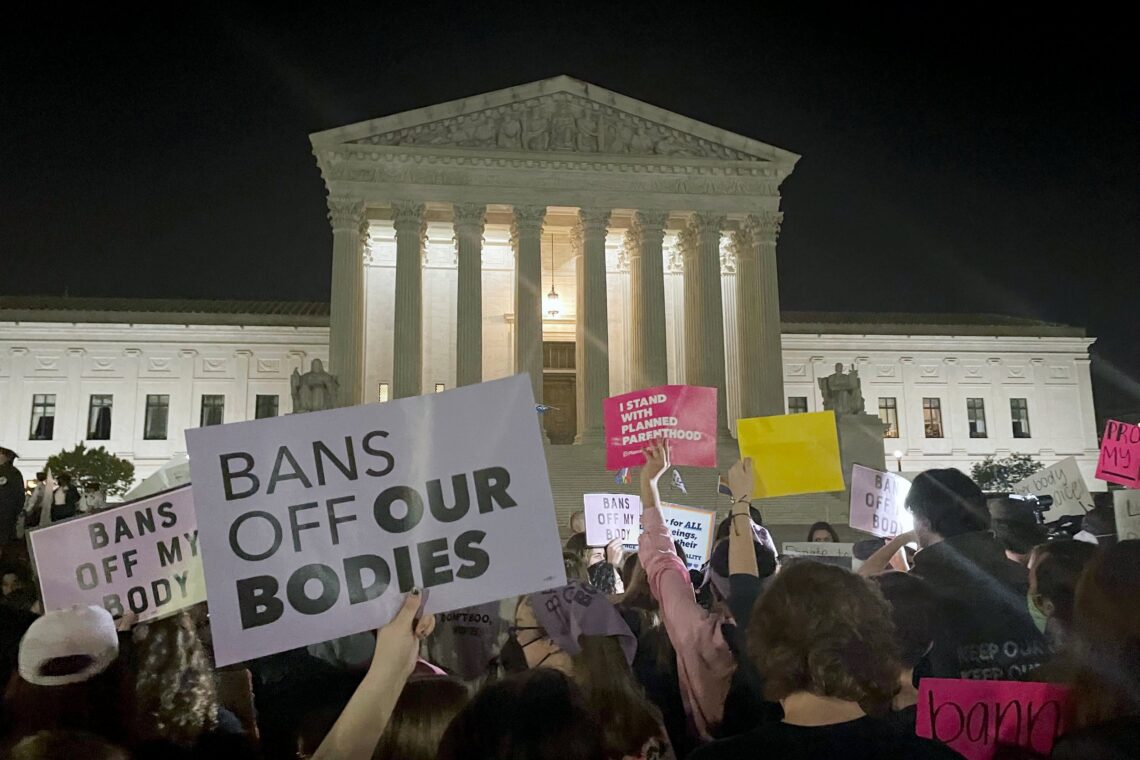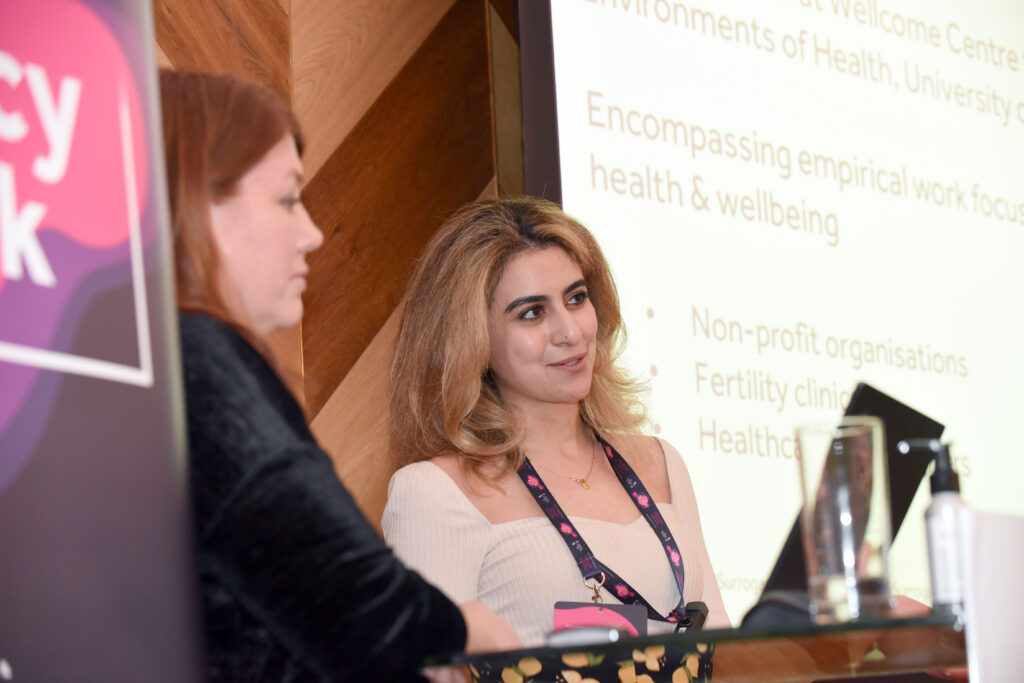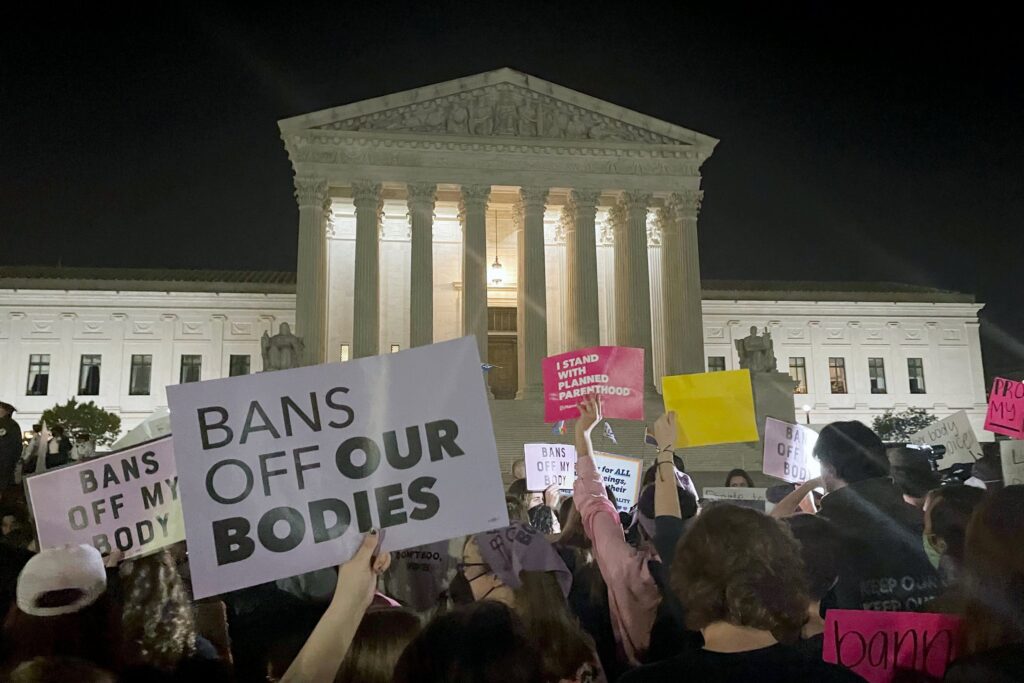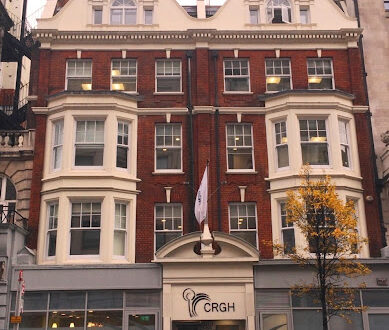
The impact of Roe v. Wade for US surrogacy?
One of the many benefits about My Surrogacy Journey is the wealth of knowledge our professional network brings to our members and the general public. In this guest blog, the talented Zaina Mahmoud, Research Associate at London Womens Clinic so expertly and passionately writes about the cluster of issues rattling through the US at the moment. But how does that impact us…read on.
‘On 2 May, the US Supreme Court draft majority opinion on Dobbs v. Jackson Women’s Health Organization was leaked and widely circulated. With much of the focus (rightly) on the potential consequences in terms of abortion access. The Dobbs case is the first time the Supreme Court will rule on the constitutionality of the 1973 decision in Roe v. Wade, which recognised the decision to continue or terminate a pregnancy as protected by the right to privacy. The leaked opinion purports to overturn Roe v. Wade, allowing each state to decide whether to allow abortion.
“Personhood”
Since the leak, many states have been emboldened to pass increasingly restrictive abortion laws. More horrifyingly, some states, like Missouri, are debating laws restricting access to various forms of contraception. Contraception such as IUDs and Plan B (emergency contraception). These states are relying on a view that “personhood” begins at the moment of fertilisation. As a result, anything that would “harm” or interfere with the progression of this fertilisation is being likened to abortion, and the termination of a life.

The impact of these “personhood” laws on fertility healthcare, and the future of IVF, in these states is monumental. It’s clear the fertility sector would be severely curtailed if states gave, full legal rights to embryos and fertilised eggs. Looking at Louisiana, for example, which is debating a bill that would criminalise abortion as homicide the law is written in such a way that a fertilised egg is the beginning of personhood.
IVF Treatment
During IVF treatment, multiple eggs are fertilised to select the best embryos to transfer. This means several fertilised eggs or embryos are discarded in the process. However, with these laws in place, what happens to aneuploid embryos (unviable due to genetic abnormalities)?
Their destruction has been made similar to abortion, seen as homicide. The proposed laws would allow the prosecution of anyone who is seen as having an abortion. Not only that, those who performs an abortion on homicide charges.
What does this mean for the recipient of these embryos? How about the rest of the embryos? Do they all have to be transferred, increasing the risk of multiples in a country where obstetric morbidity and mortality is already the highest in the Western world? Are “leftover” embryos necessarily transferred once thawed? These questions are only the tip of the iceberg.
The US and IVF Treatment
The US has long been a destination for IVF, especially for those who are unable to access treatment at home. In particular, these laws will impact LGBTQ+ families, who generally rely on IVF or other fertility care.
Louisiana and Missouri, discussed above, are some of 13 states with trigger laws (the others include Arkansas, Idaho, Kentucky, Mississippi, North Dakota, South Dakota, Oklahoma, Tennessee, Utah, Wyoming, and Texas) which allow the state to immediately ban abortion if Roe v. Wade is overturned, as the Dobbs draft decision indicates.
Paradoxically, many states with trigger laws hold themselves out as friendly to IVF and surrogacy. While some states, like Alabama, have clarified that fertilised eggs created during IVF are excluded from any ban, without answers to those questions, any reproductive material being held in the majority of these states is potentially unsafe. Moving stored gametes, embryos, etc to another state—one which is less hostile to reproductive freedom—may be a good decision for many, if that is in fact a possibility.
Abortion Protections
Four states and Washington DC have codified the right to abortion protections, and 12 states explicitly permit abortion care. On 11 May, the US Senate voted on the Women’s Health Protection Act, which would have codified the right to abortions. However, at 49-51, the bill failed to pass, as expected.

Regardless of any political efforts, the reality is that, on the whole, the US is becoming an increasingly unfriendly jurisdiction for reproductive rights and LGBTQ+ family formation. IVF and surrogacy are only a small part of procreative choices that will be impacted by the overturning. More clarity will hopefully be provided once the Supreme Court finally rules on the Dobbs case, but until then everything is frozen.’





